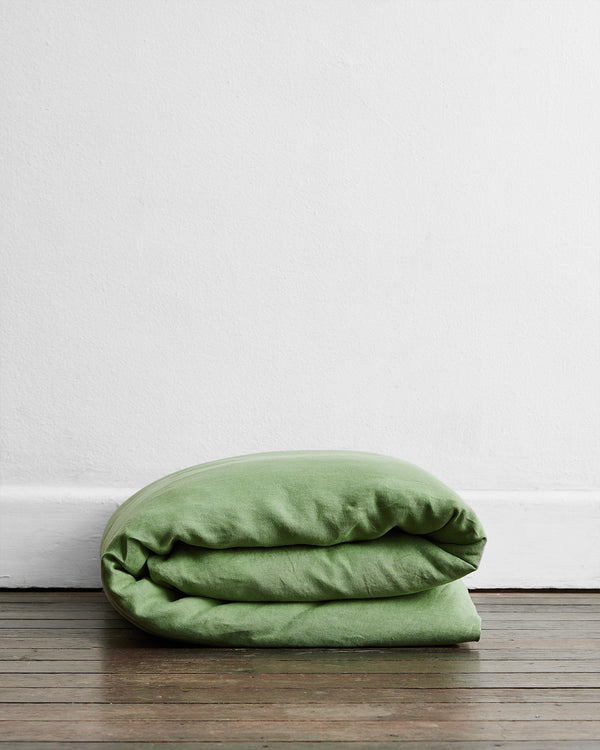
10 Simple Ways to Enhance the Quality of Your Sleep
Because falling into a deep, uninterrupted sleep isn’t always as straightforward as it sounds.
Best case scenario? We're all drifting off to sleep within minutes, and enjoying the recommended eight hours of sleep, night after night. Unfortunately, thanks to a host of lifestyle factors, interior elements, social media, and a slew of new binge-worthy TV shows, falling into a deep, uninterrupted sleep isn't always as straightforward as it sounds.
When it comes to anything relating to your health, the best port of call is your GP, who will be able to advise a correct treatment plan. However, here are some easy things you can do in the meantime that might help you have a more peaceful slumber.
1. Get in sync
Keeping a regular sleep-wake schedule will help immensely. Try to go to bed and get up at the same time every day, choosing a bedtime when you generally begin to feel tired. You will sleep more deeply and feel more refreshed by sticking to your schedule than if you alter the time you try to sleep by even one hour.
2. Avoid napping
If sleep has proved elusive, it can be tempting to nap when the opportunity presents itself, particularly after eating. But those forty winks could lead to a vicious circle developing – you can’t sleep at night because you have been napping during the day.
3. Control your exposure to light
The hormone melatonin regulates your sleep-wake cycle and is controlled by light exposure. Put simply, the dark makes you feel sleepy and light wakes you up. To regulate your sleep cycle, expose yourself to bright sunlight in the morning and try to spend as much time as possible outdoors in the daytime.
At night, avoid bright screens within at least half an hour of going to sleep. The blue light emitted by phones, tablets and computers interferes with our circadian rhythms, and confuses our hormones when our bodies need to be winding down.
4. Exercise
People who exercise tend to sleep better at night. Regular activity increases the length of time that you spend in the restorative stages of sleep. If you work out regularly and you still can’t sleep, try exercising earlier in the day and as far away from going to sleep as possible, and before you commit to something extreme, a low-intensity walk or yoga class is a good a place to start as any.
5. Consider what you're eating (and drinking!)
Minimise your intake of stimulants including caffeine and alcohol, avoid eating big meals at night when possible and don’t consume rich foods within two hours of going to bed. Spicy or acidic foods can cause stomach trouble and heartburn which will certainly keep you awake, and refined carbs and sugar can also wreak havoc with the hormones that help you wind down, and lull you into a restful sleep.
6. Wind down
It can be impossible to sleep if ideas and concerns are buzzing around your head. Stress from the day, rousing television programmes and scrolling on your phone before bed can all work on your little grey cells to the extent that you cannot fall asleep.
7. Keep cool
There’s nothing more calculated to induce restlessness than overheating. Keep your bedroom cool at night, even in winter.
8. Eliminate noise pollution
Work to remove anything from your bedroom which causes unnecessary noise. Extractor fans, creaking doors, creaking floors and draughty windows can all keep you awake, but perhaps the simplest way to snooze is to leave your phone on silent at night. And if you're in a high-traffic area, there's always earplugs.
9. Create a sleep sanctuary
It is vital that your bed is comfortable and tailored to you. Invest in a mattress which relieves pressure points if you suffer from aches and pains and test out a few mattresses to find the level of firmness which best suits your body’s needs.
Choose bedding which is comfortable, breathable and crisp, as this will regulate your temperature at night, and reserve your bed for sleeping. Try to avoid working in bed as this will help your mind associate your bed with sleep.
10. Stop thinking about sleeping (yes, seriously)
The more trouble you have sleeping, the more you'll stress about it! It sounds counter-intuitive, but try putting sleep out of your head when you're trying to drift off. Focus on your breathing and make relaxation your goal, rather than sleep.
Relaxation is rejuvenating (although not as useful as sleep) and you'll find that you fall asleep anyway when you have mastered the art of clearing your thoughts, even just for a few minutes.
Create Your Sleep Sanctuary
Enjoyed This?
Discover more sleep tips.













